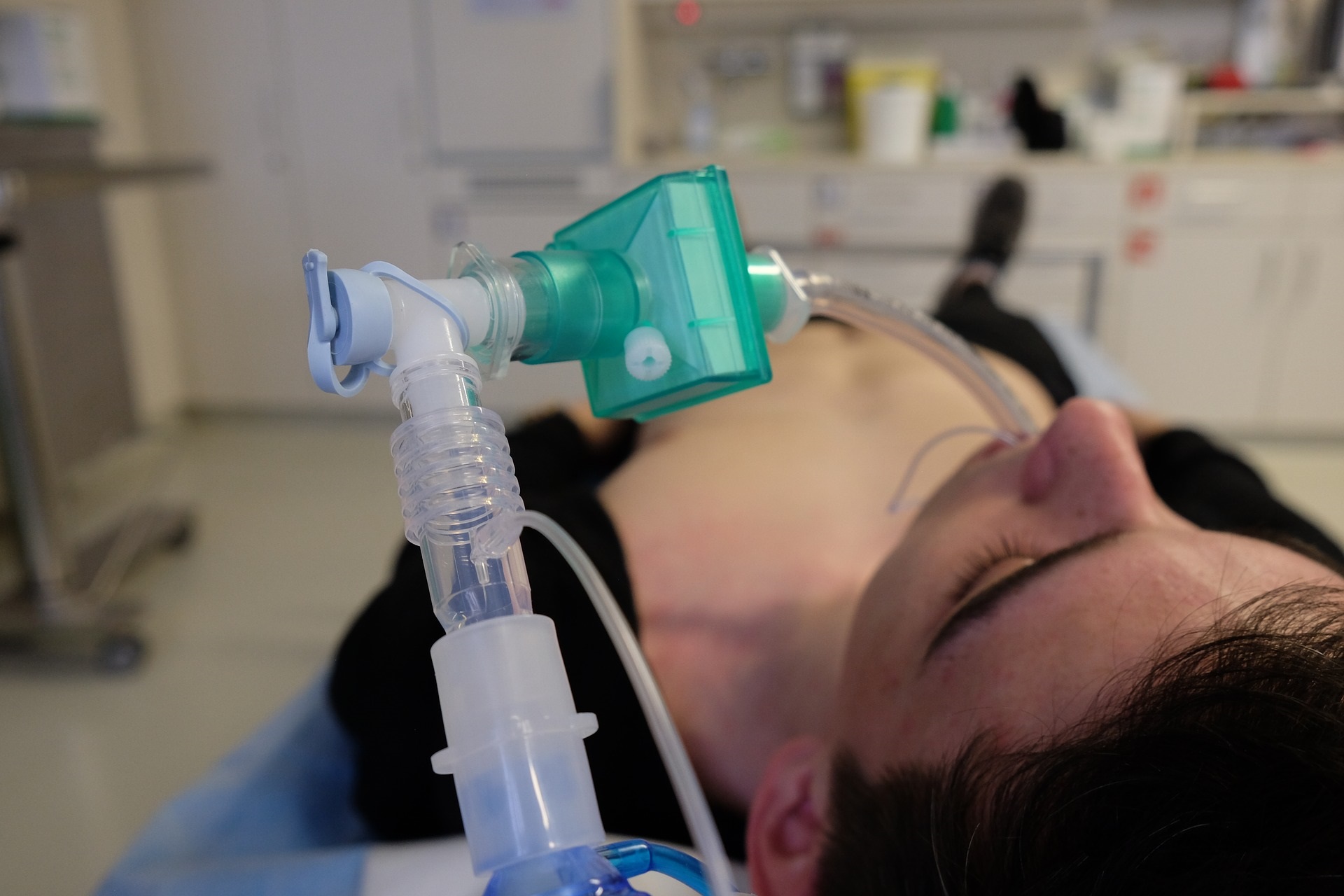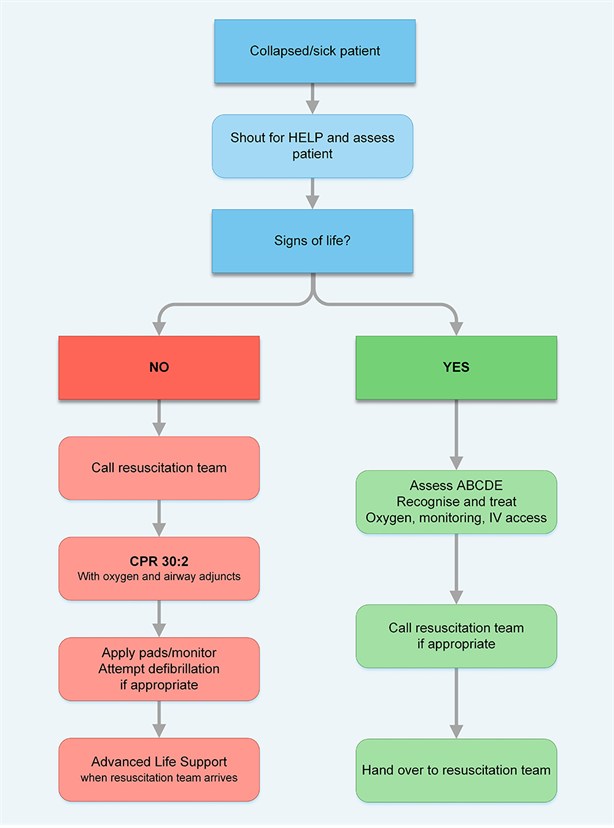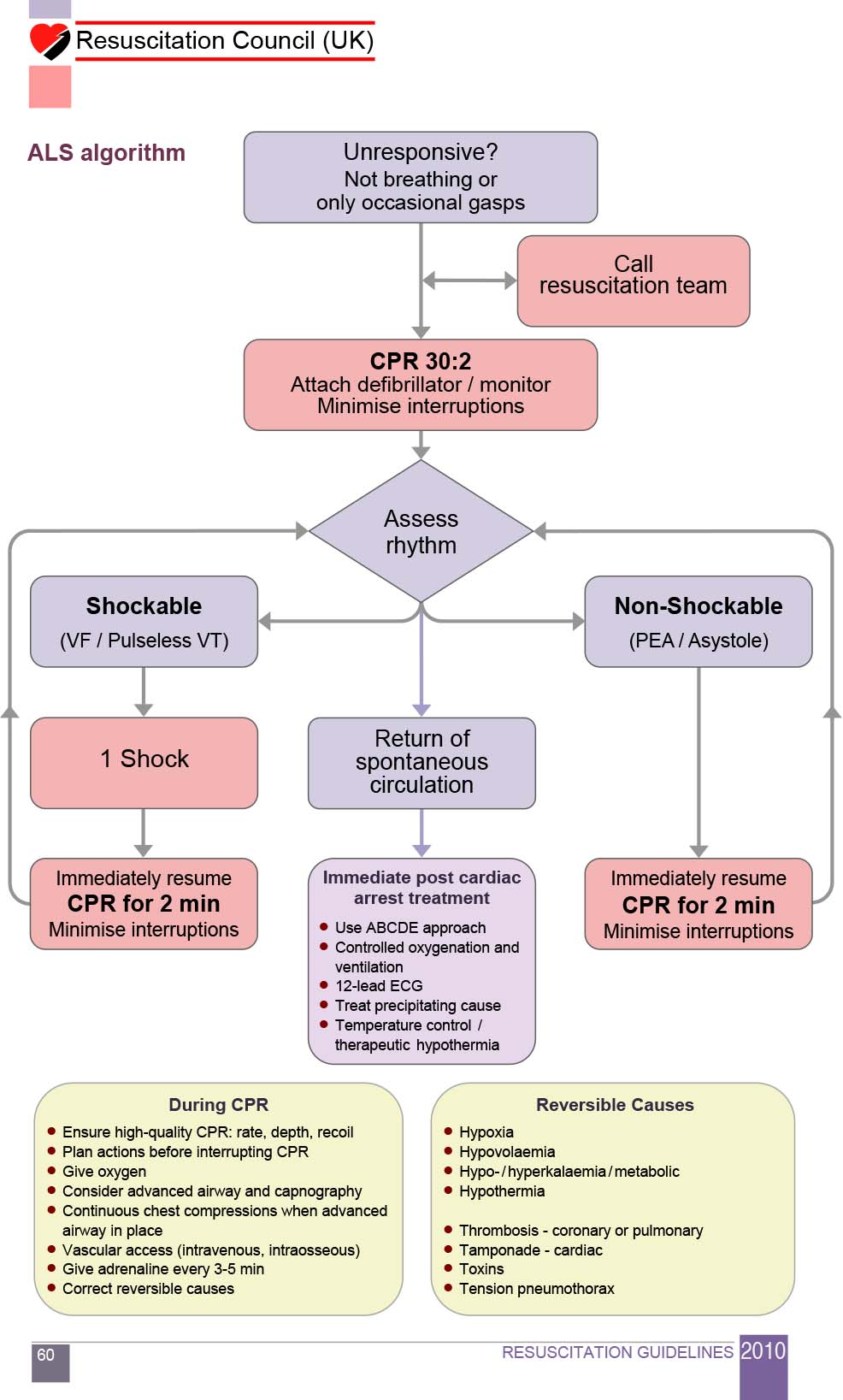Your Patient Is In Cardiac Arrest And Has Been Intubated - Your patient is in cardiac arrest and has been intubated. Monitor the patient's petco 2 b. Endotracheal intubation (eti) has long been defined as the “gold standard” for airway management to secure the airway. We briefly examine for an elevated jugular venous pressure, abnormal heart and lung sounds, and burns and wounds. To assess cpr quality, which should you do?
Your patient is in cardiac arrest and has been intubated. Endotracheal intubation (eti) has long been defined as the “gold standard” for airway management to secure the airway. Monitor the patient's petco 2 b. To assess cpr quality, which should you do? We briefly examine for an elevated jugular venous pressure, abnormal heart and lung sounds, and burns and wounds.
Monitor the patient's petco 2 b. Your patient is in cardiac arrest and has been intubated. To assess cpr quality, which should you do? We briefly examine for an elevated jugular venous pressure, abnormal heart and lung sounds, and burns and wounds. Endotracheal intubation (eti) has long been defined as the “gold standard” for airway management to secure the airway.
CPR during cardiac arrest someone's life is in your hands Harvard
To assess cpr quality, which should you do? Endotracheal intubation (eti) has long been defined as the “gold standard” for airway management to secure the airway. Monitor the patient's petco 2 b. Your patient is in cardiac arrest and has been intubated. We briefly examine for an elevated jugular venous pressure, abnormal heart and lung sounds, and burns and wounds.
Arrested development Can we improve cardiac arrest survival in hospitals?
Endotracheal intubation (eti) has long been defined as the “gold standard” for airway management to secure the airway. To assess cpr quality, which should you do? Your patient is in cardiac arrest and has been intubated. Monitor the patient's petco 2 b. We briefly examine for an elevated jugular venous pressure, abnormal heart and lung sounds, and burns and wounds.
Prolonged CPR Efforts May Be Beneficial, Study Says The New York Times
Endotracheal intubation (eti) has long been defined as the “gold standard” for airway management to secure the airway. Your patient is in cardiac arrest and has been intubated. We briefly examine for an elevated jugular venous pressure, abnormal heart and lung sounds, and burns and wounds. To assess cpr quality, which should you do? Monitor the patient's petco 2 b.
StepbyStep Master's Guide to Intubation Unitek College
Your patient is in cardiac arrest and has been intubated. To assess cpr quality, which should you do? Endotracheal intubation (eti) has long been defined as the “gold standard” for airway management to secure the airway. Monitor the patient's petco 2 b. We briefly examine for an elevated jugular venous pressure, abnormal heart and lung sounds, and burns and wounds.
Guidelines Inhospital resuscitation Resuscitation Council UK
Monitor the patient's petco 2 b. We briefly examine for an elevated jugular venous pressure, abnormal heart and lung sounds, and burns and wounds. To assess cpr quality, which should you do? Endotracheal intubation (eti) has long been defined as the “gold standard” for airway management to secure the airway. Your patient is in cardiac arrest and has been intubated.
Endotracheal intubation Purpose, Procedure & Risks
Endotracheal intubation (eti) has long been defined as the “gold standard” for airway management to secure the airway. Your patient is in cardiac arrest and has been intubated. We briefly examine for an elevated jugular venous pressure, abnormal heart and lung sounds, and burns and wounds. Monitor the patient's petco 2 b. To assess cpr quality, which should you do?
Intubation Purpose, Risks, and Recovery
To assess cpr quality, which should you do? We briefly examine for an elevated jugular venous pressure, abnormal heart and lung sounds, and burns and wounds. Your patient is in cardiac arrest and has been intubated. Endotracheal intubation (eti) has long been defined as the “gold standard” for airway management to secure the airway. Monitor the patient's petco 2 b.
Cardiac Arrest Signs and Symptoms
We briefly examine for an elevated jugular venous pressure, abnormal heart and lung sounds, and burns and wounds. Your patient is in cardiac arrest and has been intubated. Endotracheal intubation (eti) has long been defined as the “gold standard” for airway management to secure the airway. To assess cpr quality, which should you do? Monitor the patient's petco 2 b.
Cardiac Arrest Patients Don't Necessarily Do Better With Intubation
Endotracheal intubation (eti) has long been defined as the “gold standard” for airway management to secure the airway. We briefly examine for an elevated jugular venous pressure, abnormal heart and lung sounds, and burns and wounds. Your patient is in cardiac arrest and has been intubated. To assess cpr quality, which should you do? Monitor the patient's petco 2 b.
Cardiac Arrest Oxford Medical Education
Your patient is in cardiac arrest and has been intubated. We briefly examine for an elevated jugular venous pressure, abnormal heart and lung sounds, and burns and wounds. Monitor the patient's petco 2 b. Endotracheal intubation (eti) has long been defined as the “gold standard” for airway management to secure the airway. To assess cpr quality, which should you do?
We Briefly Examine For An Elevated Jugular Venous Pressure, Abnormal Heart And Lung Sounds, And Burns And Wounds.
Endotracheal intubation (eti) has long been defined as the “gold standard” for airway management to secure the airway. To assess cpr quality, which should you do? Monitor the patient's petco 2 b. Your patient is in cardiac arrest and has been intubated.






:max_bytes(150000):strip_icc()/intubation-021-5a299722e258f8003693b043.png)
:max_bytes(150000):strip_icc()/cardiacarrestsymptoms-GettyImages-1358761260-4553f03c406f43209f7f4e53d1bb1c56.jpg)

